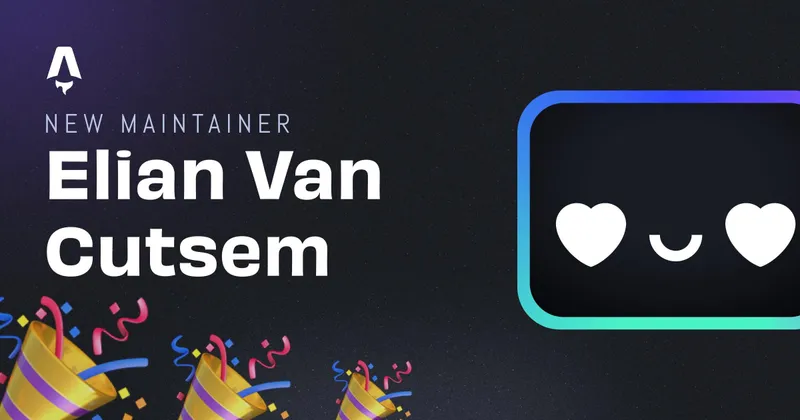Adding tracking to your Nuxt site with GA4
I’ve been wanting to see how my site did in analytics for a while now but never got to actually installing and preparing it. Now that I finally attached a new domain (elian.codes) and fixed my DNS for elianvancutsem.com. I put in the works to add google analytics to my site. (blog post coming up about how I did that soon…)
Here is a little guide on how I did it and integrated it with Nuxt
Using nuxtjs/google-analytics
The nuxtjs/google-analytics module is a Nuxt Community maintained module for Nuxt. It depends on the vue-analytics package and optimizes it for Nuxt. It’s very easy to install and configure, but it doesn’t support GA4 (yet).
Install the module with:
yarn add --dev @nuxtjs/google-analytics
and configure the nuxt.config.js by adding the module to the buildModules
{
buildModules: [
'@nuxtjs/google-analytics'
],
}
Note that if you’re using Nuxt < 2.9 you need to add it to the modules instead of buildModules.
Then simply add a new section googleAnalytics to your nuxt.config.js
export default {
googleAnalytics: {
id: "UA-XXX-X",
},
};
If your source code is private you can add it right in the config, but it’s good practice to add it as an environment variable. more about that here.
other options and configurations
There are a lot of options available to customize your config to your need and you can read more about that on the documentation.
Using vue-gtag
If you need or want to use the newer GA4, you’ll have to wait a bit longer until nuxtjs/google-analytics supports it, or use a little workaround.
You can install vue-gtag as a package and configure Nuxt to use it as a plugin.
You can install vue-gtag via cli using:
yarn add vue-gtag
then make a new file in the plugins directory called gtag.js.
then add the following to the gtag.js file:
import Vue from "vue";
import VueGtag from "vue-gtag";
Vue.use(VueGtag, {
config: { id: "G-XXXXXXXXXX" },
});
Next, configure Nuxt to use the plugin by adding this to your nuxt.config.js file:
{
plugins: ["~/plugins/gtag.js"];
}
That should be it!
Using an environment variable
It’s good practice to don’t expose your Google GTag. So you can add it as an environment. To do this you can just add process.env.GOOGLE_ANALITICS_ID instead of the tag in your config.
In the case of nuxtjs/google-analytics:
googleAnalytics: {
id: process.env.GOOGLE_ANALITICS_ID;
}
and in the case of vue-gtag:
Vue.use(VueGtag, {
config: { id: process.env.GOOGLE_ANALITICS_ID },
});
Now you can add the environment variable in your CI/CD or build config.
Hope you got something useful out of this!
Written by Elian Van Cutsem
← Back to blog



